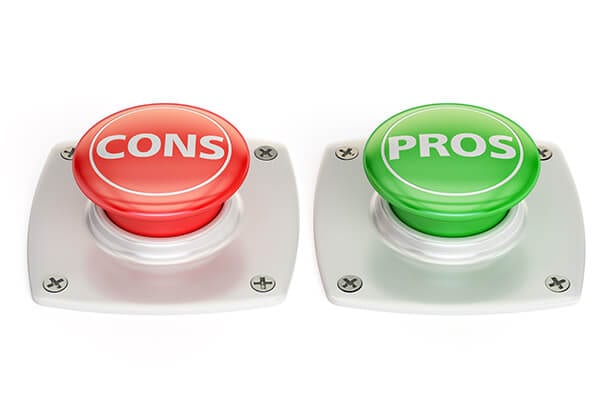With the current changes in interest rates and market conditions, the home loan given to you yesterday may not be the most suitable fit for you today. That is the primary reason why you have to consider refinancing your home. Refinancing your home allows you to get a better interest term and rate compared to the previous.
What is a home refinance?
Ever got yourself in a circumstance where you need to replace your current home with a new mortgage? Well, home refinancing is precisely that – getting a new mortgage loan to replace the existing home loan.
Refinancing your home is advantageous because it can reduce your monthly home payment amount, you can access finances for your mortgage improvement as well as cancelling home insurance premiums.
Before having a look at the five things to consider when refinancing your home, let’s check out the pros and cons of home refinancing.
Pros of Home Refinancing
The following are the benefits you will encounter when you refinance your mortgage:
Reduce Monthly Repayment
You might reduce your mortgage monthly repayment amount and end up with more money in your wallet if you manage to negotiate a better rate with your current lender. You will achieve this if you also succeed in setting a lower interest rate compared to the previous one with your new lender.
Debt Consolidation
You can use your mortgage equity to consolidate your debts. It is good because you will find yourself reducing interest rates on your debts. You can roll all your debts and loans into your newly refinanced mortgage loan. With this in place, you will only worry about paying one monthly payment often at a low-interest rate.
Greater flexibility
There are many more benefits you will receive when refinancing like receiving greater flexibility in terms of changing the duration of your loan and switching to the fixed or variable interest rate.
Drawbacks of home refinance
It is rare to find a product without its side effects. As much as refinancing can save you money, it can also land you in hot water. While lower interest rates and reduced monthly payments might lure you at first glance, it vital to also know the potential risks that might come along. Home refinancing can cause you the following problems;
Extend a Loan’s Term
Even when interest rates drop drastically, it is not always the right choice to refinance your home. Refinancing your home will typically increase the amount of time you will take to repay your mortgage loan.
Take, for example, getting a new five-year loan to replace an existing five-year loan; loan payments will be calculated to last for the next five years. If your current mortgage loan has one year left, refinancing may result in higher interest costs.
Closing Costs
It costs money to end a contract of a professional football player in the famous English Premier League. The same applies to refinance a home. You will pay a particular fee to your new lender as compensation. Extra costs may be incurred to obtain legal documents, appraisals, credit checks, among others. You might be forced to repay your mortgage insurance even if you paid for the previous home.
Consider the following
Well, for you to avoid any risks when refinancing your home, you need to consider the following:
Know Your Home Equity
Your property’s equity is the first thing you should evaluate before you make a home refinance. It is the first qualification you will need to refinance your home. Your home refinancing application will have high chances of being approved if your property equity is high. You might owe more in your home than it is currently worth or you might have no equity in it. It will all depend on your financial condition or hosing market.
Know Your Credit Score
Checking your credit score is important. If your credit file is filled with defaults, court judgements or credit enquiries, it will make it a lot harder to secure a loan with a traditional bank. Traditional lenders have become stricter on lending criteria. Alternative Lending Centres, can be more flexible; but you will still need to be aware of your score.
Your Debt to Income Ratio
Some people assume that they can get a refinance if they qualified for a home loan. It is not always the case because lenders have not confided themselves to credit scores only. They have raised the bars and become stricter with Debt to Income Ratio.
While it might seem challenging to get home to refinance, your most recent debt-to-income ratio might calm down your prospects. Always strive to keep your arrears to the minimum
The Cost Of Refinancing
Every good deed comes with a cost. The same applies to mortgage refinancing. You should always find out and get to know any expenses that are attached to your new loan. It will cost you 3% -5% of the overall refinance amount to refinance a home.
There are fees which can be reduced or at times paid by the lender. These fees might affect your principal or interest rate.
Know Your Taxes
Some of you rely on mortgage interest deduction to lower your state revenue tax bill. A home refinance may reduce your tax deduction if you refinance and start paying less interest.
It is advisable to visit a tax advisor who is experienced with home loans to provide you with valid information before you decide to apply for a home refinance.
Bottom Line
Refinancing your home is not as easy as it might seem. You need to take time to think and plan about it. You don’t want to fall on a hot frying pan afterwards. Before you go for a refinance, it will be wise if you reach out to the Australian Lending Centre for remarkable advice. They will help you figure out whether you should or should not refinance.






 2. Standard lawsuit
2. Standard lawsuit




